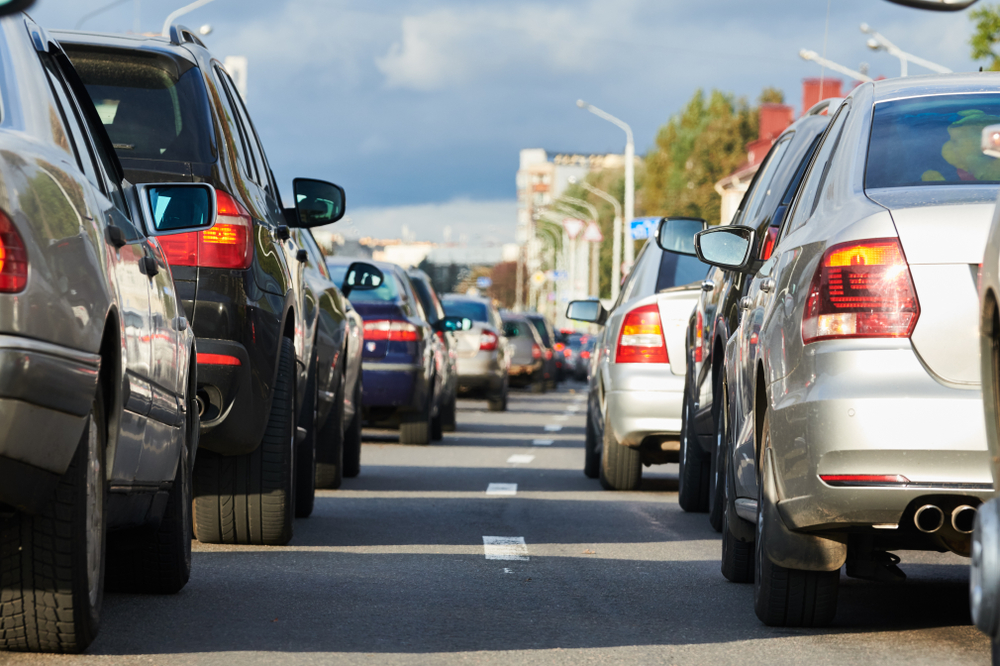
Car Accident While Driving for Work in Alabama? What To Know
From delivery drivers on city streets to sales representatives covering large territories, vehicles are essential tools for many workers in Alabama. Unfortunately, the more time one spends on the road, the higher the likelihood of being involved in a car accident. The National Safety Council reports that in 2019 alone, the United States saw over 4.5 million motor vehicle incidents that required medical attention. It’s a fact that wrecks can happen on the job. The question remains, what should you do in Alabama after a car accident while working?
In this article, we’ll take a closer look at understanding work-related car accidents, including the kinds of liability that apply and the role that your vehicle plays in your claim. If you’ve been injured in a car accident while at work, it’s important to understand all of your rights.
At Jay Pickering Law Firm, we’re here to help. Call or contact us anytime, and speak directly with a lawyer who gets what your going through and is here to help you find justice and recover the compensation you deserve.
Understanding Work-Related Car Accidents
Work-related car accidents can involve a range of scenarios, from delivery drivers involved in collisions while making deliveries to sales representatives getting into accidents as they travel between client meetings. According to the Bureau of Labor Statistics, transportation incidents accounted for 40% of all work-related fatalities in the United States in 2019, highlighting the significant risks associated with job-related driving.
The “Coming and Going” Rule
A critical aspect of work-related car accidents in Alabama is understanding the “coming and going” rule. This rule generally states that employees are not covered by workers’ compensation for accidents that occur while they are commuting to or from their place of work. The rationale behind this rule is that commuting is considered a personal activity, not a job-related task.
Exceptions to the Rule
However, there are notable exceptions to this rule:
- Job-Related Errands: If an employee is involved in an accident while running an errand for their employer, such as depositing company funds at a bank, this may be considered within the scope of employment.
- Traveling Between Work Sites: Employees who travel between multiple job sites or offices during their workday and are involved in an accident may be eligible for workers’ compensation, as these activities are directly related to their employment.
- Special Assignments: Occasions where an employee is on a special assignment for their employer, even if it involves travel outside of normal working hours, can also be covered under workers’ compensation.
Implications of Work-Related Car Accidents
Work-related car accidents can have significant implications for both employees and employers. For employees, these accidents can lead to serious injuries, impacting their ability to work and earn a living. For employers, these incidents can result in increased workers’ compensation insurance premiums and potential legal liability, especially if the employer is found to have failed in their duty to provide a safe working environment or if the accident occurred during a job-related task.
Employer Liability and Vicarious Liability
In the context of work-related car accidents in Alabama, it’s important to understand the concepts of employer liability and vicarious liability. These legal principles determine when an employer is responsible for actions taken by their employees, including incidents that occur while driving for work.
Employer Liability
Employer liability refers to the responsibility an employer may have for the actions of their employees, provided these actions are within the scope of their employment. In Alabama, like in most states, this principle is grounded in the idea that employers should bear some responsibility for the risks associated with the work they require their employees to undertake. For example, if an employee causes a car accident while making deliveries for their employer, the employer could be held liable for damages resulting from that accident.
Vicarious Liability
Vicarious liability is a specific form of employer liability. It holds employers responsible for the actions of their employees when those actions are within the course of their employment. This means that even if the employer did not directly cause the harm, they could still be held liable simply because the employee was acting on their behalf at the time of the incident.
Key Points
- Scope of Employment: For vicarious liability to apply, the employee’s actions must fall within the scope of their employment. This includes tasks performed in the interest of or under the direction of the employer.
- Exclusions: Not all actions by employees are covered under vicarious liability. For example, if an employee is running a personal errand unrelated to their job duties and causes an accident, the employer may not be held liable.
- Impact on Employers: Vicarious liability emphasizes the importance of employers implementing and enforcing safe driving policies for employees. Failure to do so can lead to significant legal and financial consequences.
The Impact of the Vehicle Type on Coverage and Liability
The type of vehicle involved in a car accident while working in Alabama can significantly impact insurance coverage and liability issues. Whether an employee is driving a company-owned vehicle or their personal vehicle for work purposes dictates different insurance considerations and liabilities. Addition considerations come into play if it’s an Uber accident or if another rideshare company is involved.
Company-Owned Vehicles
When employees are driving vehicles owned by their employer for job-related tasks, the employer’s commercial auto insurance policy typically covers damages resulting from an accident. These policies are designed to offer protection for physical damage to the vehicle and liability coverage for bodily injury or property damage that the employee might cause to others while operating the vehicle for work-related purposes.
Key Aspects
- Comprehensive Coverage: Employer’s commercial auto insurance generally provides broad coverage, including liability, collision, and comprehensive damage.
- Employer Liability: If an employee causes an accident while driving a company-owned vehicle on the job, the employer is likely to be held liable, given the vehicle is covered under the employer’s commercial insurance.
Get the Help You Need After a Work-Related Car Accident in Alabama
If you or someone you know has been involved in a work-related car accident in Alabama and have further questions or need assistance, Jay Pickering Law Firm is here to help. With extensive experience in personal injury law, we are committed to providing you with the guidance and representation you need to navigate the complexities of your case. Don’t navigate this challenging time alone. Reach out to our firm for a 100% free case review, and get all of your questions answered by an experienced car accident lawyer.

Attorney Jay Pickering brings over 27 years of unwavering dedication to personal injury law, with a sharp focus on representing those injured in car, truck, and motorcycle accidents across Alabama. A proud alum of the University of Alabama School of Law, Jay is a member of the Alabama State Bar and the American Bar Association.
